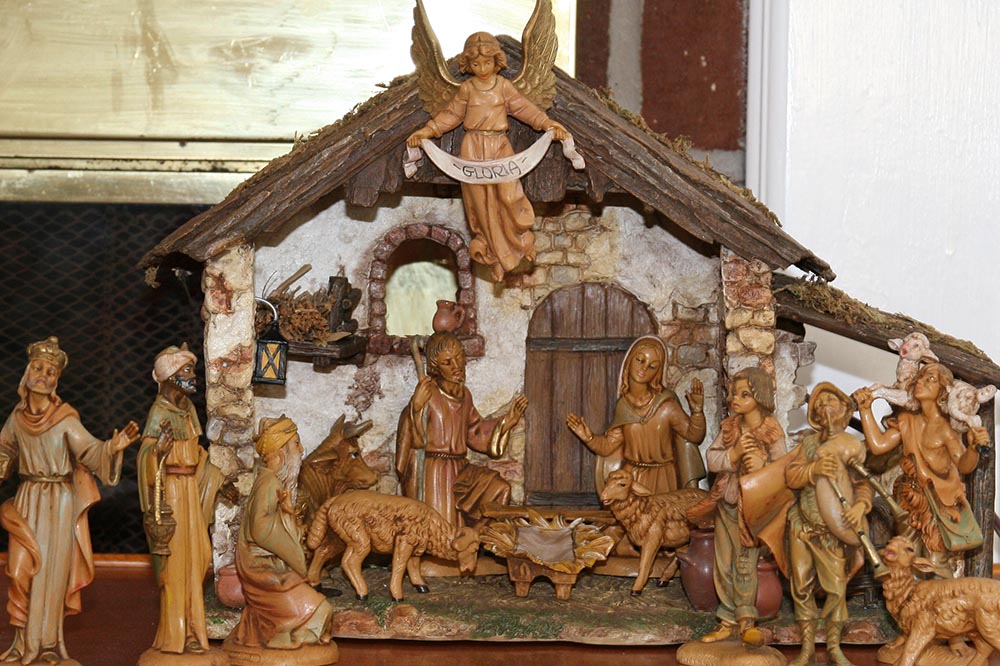If you grew up with a nativity set in your home that was a family heirloom, chances are pretty good that is was a Fontanini Nativity set.
The Fontanini tradition dates back to the late 1800s when company founder Emanuele Fontanini began creating crèche figures in the little town of Bagni di Lucca located in Tuscany, Italy. He opened his first shop in 1908, and the company has remained a family business ever since. Today, it is run by Emanuele’s great-grandchildren.
What makes Fontanini nativity sets so enduringly popular? The answer lies in their beauty, their details, and their durability.
Each new figurine or nativity set piece is created as part of an artistic process that can take up to two years to complete. Lead sculptor Elio Simonetti first creates designs for a new piece. When members of the Fontanini family approve the designs, Simonetti then begins work on a clay prototype.
Next, Simonetti and his design team create a beeswax form that is used to make the mold for the figure or set piece. This form is highly detailed.
Skilled artisans then paint the new figurine section by section in a modified assembly line format. However, some of the artists do the painting in their own homes or workshops.
One artist will paint the robe, while one will paint the hair, for example. The facial features are left until the end. Only master painters have the honor of bringing the figures to life by painting their eyes, mouths, and other distinctive features.
It is this unusual and time-consuming process that gives Fontanini nativity pieces their unique quality and personality.
Although they have been passed down for generations now – especially within families of Italian heritage – new Fontanini sets were not available for purchase in the United States until 1973. That is the year Roman Inc. obtained exclusive distribution rights for the company’s products in the U.S.
Since then, interest in new and retired Fontanini pieces has accelerated dramatically. The Fontanini five-inch scale collection is the most popular. Other popular scales are the 3.5-inch and 7.5 inch.
Many families begin their nativity set with the Holy Family, the stable and the manger, and then they add on new pieces each year. Families can eventually create an entire town with Fontanini figurines and nativity set pieces.
Distinctive Fontanini stables typically are made of real wood and are covered with moss. The durable resin figures are painted with non-lead based paint, so they are safe for children. A Fontanini tradition is that Baby Jesus is always removable, so that He may be placed in the manger on Christmas Eve, if desired (there are many different traditions for placing Christ in the manager).
Another unique feature of Fontanini nativity sets is that each five-inch figure comes with a story card filled with historic facts about the life of Jesus and about the artistry of the figure.
Because many people collect Fontanini figures, there is a member’s only preview figure released each year. In addition, certain pieces are retired on a regular basis in order to make room for new creations. Retired figures are available only on a limited basis, and some become hot collector’s items.
Be on the lookout for imitations. Older Fontanini figures are marked on the bottom with the phrase “Depose Italy” and a small spider. Figures made in the 1980s and beyond feature the Fontanini name, the date it was made, and a picture of a small fountain.
Now that you know something about the history of Fontanini nativity sets, perhaps you will want to begin your own Fontanini tradition this Christmas.
